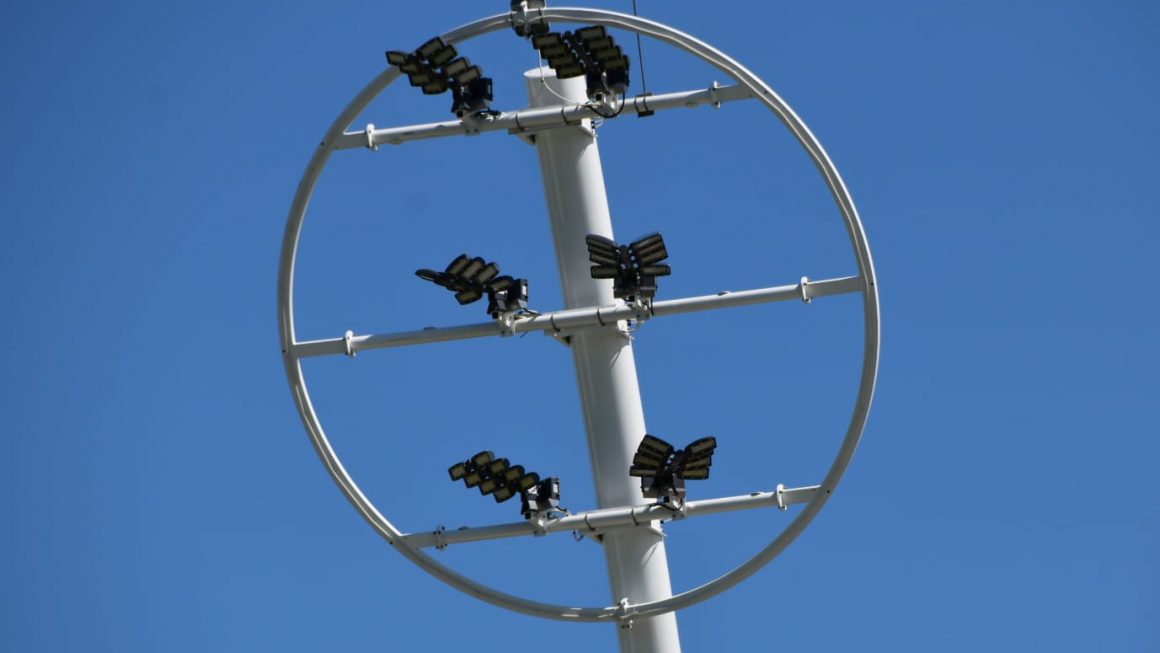When news about the latest blockbuster Sky/BT television deal exploded across Twitter, so scarcely believable were the figures that you could sense the incredulity from those at the press conference. You could almost hear their brains fizzing and popping as they let the news sink in.
A modest increase on the previous eye-watering deal was expected – but five billion quid? Five billion?
The internet was almost immediately drowning in stats expertly designed to smash you over the head with the amoral monstrousness of it all, the baffling and incomprehensible billions carved and diced into digestible nuggets we could all relate to. Perhaps my favourite is that BT and Sky will spend more per second on live football than many people earn in a month, a dizzying fact that left me shaking my head while tucking into a bowl of distinctly indigestible 14p instant noodles.
Five billion is the stuff of dystopian nightmares, an obscene lump of cash that further cements the Premier League’s villainous role as the vacuous Death Star of English football, a sinister sphere of doom looming over us, Gary Neville’s laser eyes ready to smite the unbelievers. With five billion, you can drill tunnels to France or send a rover to Mars. James Bond villains build volcanoes staffed by useless henchmen with a fraction of the budget. With pockets that deep, you could even afford a 10% deposit on a damp bedsit in Hackney.
Away from the offices of lifestyle management firms, agents and the forecourts of Ferrari dealerships, the news was greeted with a sort of weary dismay, befitting a nation that has grown accustomed to crass inequality and the growing realisation that, apart from Russell Brand, no-one important is remotely bothered about fixing it.
“Football’s just about the money these days,” I heard one bloke in my office say. It’s a common response, but a strange one: football has always been about money and it always will be about money. It’s the same whether you’re the CEO of a global brand like Manchester United, signing up official laxative partners in Taiwan, or the beleaguered secretary of a pub team, chasing subs.
But the game wasn’t invented to be giant hedge fund. Football can and should be about MORE than money. Just ask David Newton and Neil Kempster, who have somehow – and I’m not sure how – successfully juggled their own business interests with the hugely expensive rehabilitation of one of non-league football’s great basket cases. And, with luck, they stand to profit too. It might be a win-win for all parties, but it has taken hard work and imagination and a willingness to appreciate the importance of our daft game on the lives of normal people in normal towns, beyond the gilded lands of super-rich oligarchs.
Judging by the Premier League’s historical intransigence, this brand of social responsibility is not a philosophy they’re keen to buy into. Of course, the Premier League’s slick propaganda wing stands ready and alert to deploy feel-good stories about its investments outside its own borders, but the sums involved are – relatively speaking – so pitiful that they border on the offensive, like leaving a 10p tip at the Fat Duck.
Who cares about romance – a word that stinks of the 70s – when there’s £100 million to be made by finishing rock bottom of the Premier League? No amount of marketing will fix that.
And so, as is now traditional in the immediate aftermath of every TV rights announcement, instant demands were made for the elite clubs to part with more of their indecent wealth and gift it to grass-roots football, or slash ticket prices, or pay staff a decent living wage. But, as Premier League chief Richard Scudamore admitted with stark candour, no-one can force them to do any of it. “We’re not a charity,” he said with a pointed bluntness, probably while daydreaming of diving into huge piles of cash, like a profoundly dull version of Scrooge McDuck.
He may have couched it in somewhat callous terms, but Scudamore is right: the Premier League is not a charity. It has no obligation to fund the rest of football any more than Mark Zuckerberg has an obligation to buy me a new kitchen. But it could choose to do so regardless – its clubs would barely register the difference. Such vast riches afford the elite a unique opportunity to develop English football such that we all benefit, but the collective appear alarmingly reluctant to even contemplate it.
That the league sees such investment as beyond its remit is dismaying.Not everyone agrees. The Daily Mail’s Martin Samuel mocked the clamour for a share of the television spoils, and the political bandwagon that football has become. “The Premier League,” he raged, “is now expected to swoop in and save the rest of football from its ineptitude.” Like Scudamore, Samuel is half right. English football is indeed a rotten stew of financial calamities, but what he fails to acknowledge is that the Premier League’s total domination of English football has significantly contributed to an undignified free-for-all that causes seriously misguided decision making. Everyone wants in, but there’s simply not enough room.
Samuel was also unstinting in his scathing criticism of the FA’s marketing of the poor old FA Cup, but again, he missed the point. The once-adored cup, shunted off to the fringes, has the naff aura of a washed-up soap star staggering onto Celebrity Big Brother, living off past glories. Who cares about romance – a word that stinks of the 70s – when there’s £100 million to be made by finishing rock bottom of the Premier League? No amount of marketing will fix that.
There’s something else, too. The Minister for sport, Helen Grant, described the Premier League as a “great British success story”, but when you study it more closely it’s nothing of the sort. Many clubs were flogged off to foreign owners seduced by the stupendous selling power of the Premier League.
Clubs are now deemed status symbols, flaunted as marketing vessels by entire nations, and when patriotic fervour translates into ambitions of global domination any notion of benevolent philanthropy aren’t so much placed on the back burner as dumped in a skip behind the kitchen.
In the spirit of full disclosure, I should point out that I subscribe to Sky Sports, and BT. Yes, this is mainly why I have to eat 14p noodles, but I love the Premier League too much to give it up. It’s brilliant entertainment. My Sundays have been transformed from tedious walks in the countryside to high-octane sofa-bound entertainment while getting fat. It’s superb.
The resentment is not that the TV deal happened. It’s that the aggressive insularity of the Premier League, along with its ruthless obsession with profit and contempt for English football in general, are traits that will be allowed to fester unchallenged, and there’s only so much you can exploit people before the populist vote turns. The Premier League has a one-in-a-generation window, and the funds, to be a force for good. But it doesn’t want to be, as if it believes the good times will last forever. They won’t, of course, and when the Premier League boom turns to a bust you can be sure the damage will spread far beyond that bubble Richard Scudamore is hell-bent on protecting from people asking for a decent wage.
Football will always be about money, but as much as the Premier League wants to ignore it, there’s a soul there too – a beating heart that’s more than just fast cars, big houses and off-shore tax avoidance schemes. And more than ever, that’s worth investing in. One day, the big clubs are going to need it.
Get your wallet out, Richard.
This article was originally published by the Boston Standard


